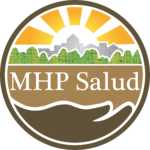Familias Saludables: Start Your Journey Toward Health
Through MHP Salud’s Healthy Living initiative, Community Health Workers provide free classes to recipients of SNAP, helping families grow healthier together.
Do you receive nutritional support through SNAP? Join us for FREE classes to learn to:
- Maximize your benefits with grocery shopping tips and tricks
- Make healthier choices by learning how to read food labels
- Incorporate more fruits and vegetables into your daily diet (you won’t even miss the processed snacks!)
- Increase your physical activity — find what works for your family to incorporate simple changes into each day
- Find ways to make healthy choices together — we’ll share LOTS of strategies and tools so you can determine what’s best for you!
Why is this so important?
Nothing is more important than your health and the health of your family. Familias Saludables is here to help you focus on your health and take small, simple steps toward healthier tomorrows.
You don’t have to take this journey toward health alone!
Contact us today to learn more about Familias Saludables and take the first step toward a healthier tomorrow! Call (956) 968-3600, Option 3
Small steps = BIG results!
Children in Familias Saludables increased their fruit intake by 26% and vegetable intake by 65%!
Our fun, interactive classes are led by local Community Health Workers — Promotores de Salud — who engage participants at every step.
Expect lots of learning, laughter and activity in your classes — and don’t be surprised when you start reaching for those veggies and taking an extra walk around the block! These strategies are easy to implement, and we’ll share lots of tips to keep you motivated!
Sessions are in English and Spanish. Classes take place in convenient locations including schools, churches, parks, community centers, and other popular locations.
Outcomes
Increased activity, increased fruit and vegetable intake, improved relationships, improved health and well-being … the benefits of this short program can last a lifetime. Don’t miss out on your chance to make meaningful change today!
Want more information on this program? Please contact us at info@mhpsalud.org
About MHP Salud
MHP Salud has 40+ years of experience creating healthier, stronger communities — and helping others do the same! For more information about MHP Salud, our services, and how we can help you, please email us at info@mhpsalud.org


